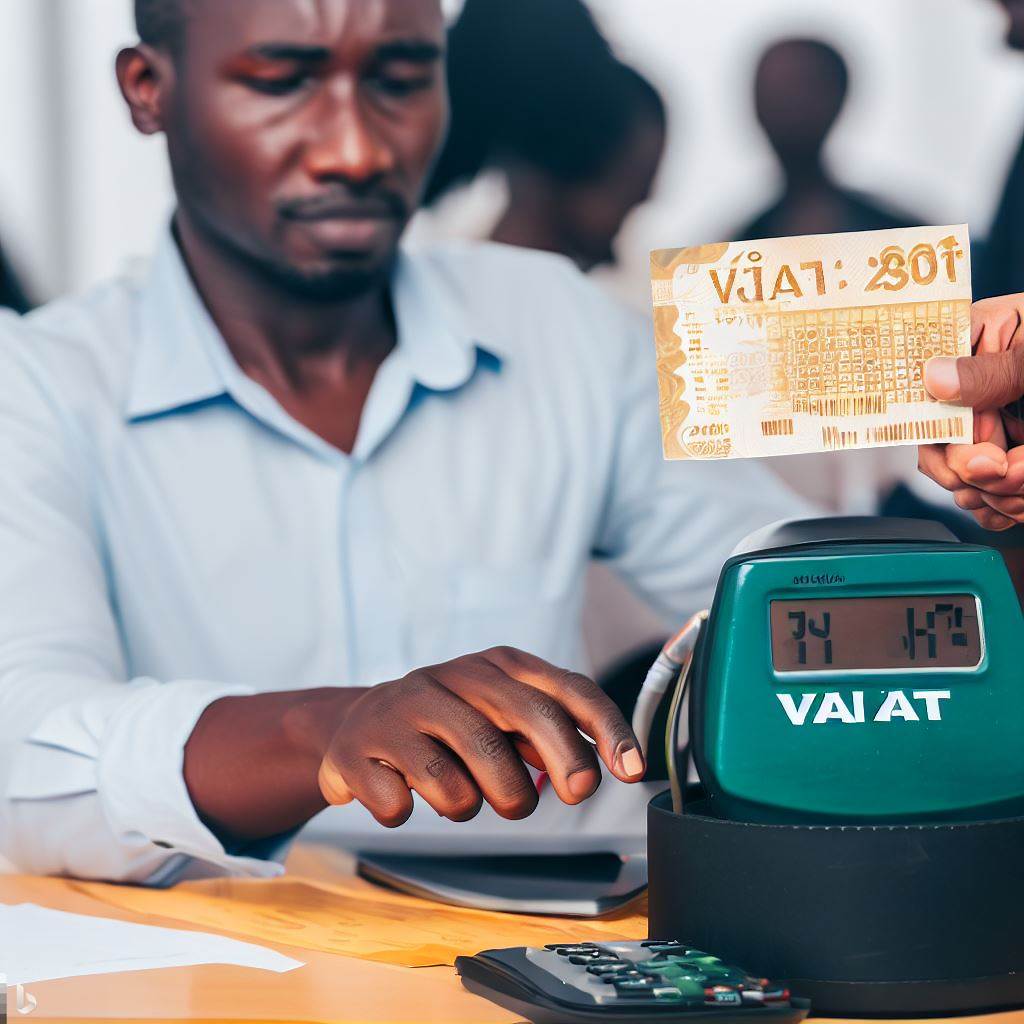Introduction
As a freelancer in Nigeria, understanding the value-added tax (VAT) is crucial. VAT is a consumption tax that is charged on goods and services at a rate of 7.5%.
Registered businesses, including freelancers, must collect this tax on the government’s behalf from the end consumer. Freelancers must register for VAT and correctly charge clients.
Failure to comply with VAT laws can result in penalties and legal consequences.
Maintaining precise transaction records and ensuring proper remittance of VAT charges to the relevant authorities is crucial.
Freelancers exporting services outside Nigeria might qualify for VAT exemptions, but expert guidance on the tax laws in their target markets is advisable.
As a freelancer, registering for VAT is a simple process that can be done online.
Comprehending and adhering to VAT laws allows Nigerian freelancers to safeguard their businesses, avoid legal and financial risks, and contribute to economic development.
Hence, understanding and prioritizing VAT compliance enables freelancers to concentrate on business growth without overlooking its significance.
Read: Client Pitch: Making It Count in Nigeria’s Freelance Scene
What is VAT?
Value Added Tax, commonly known as VAT, is a consumption tax that is levied on goods and services at every stage of production and distribution.
The supply chain adds value to products or services at each stage, which incurs VAT. The end consumer ultimately pays it. Businesses collect this VAT for the government.
For freelancers in Nigeria, understanding VAT is crucial as it affects their pricing and invoicing decisions.
Being aware of VAT rules and regulations ensures that they comply with the law while avoiding unnecessary deductions and penalties.
Importance of understanding VAT as a freelancer in Nigeria
Here are some reasons why understanding VAT is important for freelancers in Nigeria:
1. Compliance with the law:
As a freelancer in Nigeria, you are required to register for VAT if your annual turnover exceeds five million naira.
Failure to comply with VAT regulations can result in penalties and legal consequences. Therefore, it is important to understand VAT rules and regulations to avoid such consequences.
2. Accurate pricing:
Understanding VAT allows you to accurately price your goods and services. The VAT component of your pricing should be included in your invoice to ensure that you are not losing money on your sales.
3. Better cash flow management:
By understanding VAT, freelancers in Nigeria can better manage their cash flow.
Businesses collect VAT every month and remit it to the government. They can offset input VAT against their sales VAT.
4. Competitive advantage:
Knowledge of VAT gives freelancers a competitive edge over their competitors who may lack such knowledge.
This is because it enables them to offer more competitive prices and comply with the law. Understanding VAT also involves knowing the VAT rates applicable to various goods and services.
In Nigeria, the current VAT rate is 7.5%. However, there are some goods and services that are exempt from VAT, such as medical services, transportation services, and basic food items.
Some goods and services are also zero-rated, meaning that they are not exempt from VAT but attract a 0% rate. These goods and services include exports, books and educational materials, and oil and gas equipment.
As a freelancer in Nigeria, it is important to note that VAT applies to both goods and services, including online services and digital products such as e-books, videos, and software.
Therefore, understanding VAT is a must for freelancers in Nigeria. It ensures compliance with the law, accurate pricing, better cash flow management, and a competitive advantage.
Additionally, it is important to stay up to date with any changes in VAT regulations to avoid penalties and legal consequences.
Read: Pitching for Success: Freelancing Tips from Nigerian Pros
Definition of VAT in Nigeria
The Federal Inland Revenue Service (FIRS) in Nigeria imposes a consumption tax on goods and services. They collect and remit this Value Added Tax (VAT) to the government.
How it works
- VAT is charged at every stage of production and distribution of goods and services.
- It is calculated as a percentage of the value of a product or service.
- VAT registered businesses are required to collect and remit the tax to the government regularly.
Who is affected by VAT?
- Consumers pay VAT when they purchase goods and services.
- Registered businesses collect and remit VAT on behalf of the government.
VAT rates
- The standard rate of VAT in Nigeria is 7.5%
- Some goods and services are exempt from VAT, such as basic food items, medical supplies, and exported goods and services.
How VAT Affects Freelancers in Nigeria
- Freelancers are not exempt from VAT and are required to register for VAT if they earn above the threshold of ₦25 million per annum.
- Freelancers who register for VAT are required to charge their clients VAT on their services.
- Freelancers who are not registered for VAT are not allowed to charge VAT on their services.
- Freelancers who are registered for VAT are also required to file monthly VAT returns and remit the tax collected to the government.
- Freelancers should keep accurate records of their income and expenses to avoid penalties for non-compliance with VAT regulations.
- Freelancers who provide services to foreign clients are not required to charge VAT, but they are required to provide evidence of the export.
- Depending on the type of services provided, freelancers may be eligible for VAT refunds on their inputs.
Most importantly, VAT is an important tax in Nigeria that affects both consumers and businesses, including freelancers.
Freelancers should be aware of their VAT obligations and comply with the regulations to avoid penalties and legal issues.
Understanding VAT in Nigeria as a Freelancer
You may know about Value Added Tax (VAT) as a freelancer, but find it confusing.
VAT is a consumption tax levied on consumed goods and services. It’s a legal requirement, and non-compliance can lead to penalties.
In this article, we will be discussing the regulations that govern VAT in Nigeria and the importance of complying with them as a freelancer.
Read: Leveraging the Power of Proposals in Nigeria’s Gig Economy

Businesses Required to Register for VAT
As per the Nigerian Government, businesses dealing in taxable goods and services with a turnover exceeding 25 million Naira annually must register for VAT.
Therefore, all businesses providing services or selling goods, regardless of size or location, must register for VAT.
Once registered, businesses are obliged to charge VAT on the goods and services they offer.
Consequences of not Complying with VAT Regulations
The Nigerian Government takes non-compliance with tax regulations seriously and imposes penalties on defaulters.
Failure to register for VAT or failure to remit VAT can result in penalties ranging from 5-10% of the VAT due, interest charges, and even imprisonment.
Therefore, it is essential to comply with VAT regulations to avoid any penalties.
As a freelancer, the consequences of non-compliance with VAT regulations can negatively impact your business’s growth and reputation.
VAT Registration for Freelancers
If your annual service turnover exceeds 25 million Naira as a Nigerian freelancer, you must register for VAT.
You can register through the Federal Inland Revenue Service (FIRS) office or the online portal.
The registration process for VAT is both free and relatively straightforward.
VAT Filing and Payment Deadlines
Freelancers must file VAT returns and remit VAT due to FIRS by the 21st day of the following month. For example, the VAT returns and payment for the month of July are due on or before August 21st.
Exactly, as a freelancer providing taxable goods or services, you must file a VAT return for each month in which you conducted business. Failure to file and pay VAT by the deadline can result in penalties.
Benefits of Complying with VAT Regulations as a Freelancer
Complying with VAT regulations as a freelancer can have several benefits for your business.
Firstly, registering for VAT can give your business credibility and help establish trust with clients.
Furthermore, when you levy VAT, you can claim input VAT on business-related purchases, allowing you to offset the amount you owe FIRS. VAT compliance can also help you avoid penalties and legal issues that could arise from non-compliance.
In fact, VAT is an essential tax that is required by law in Nigeria.
For freelancers, timely VAT registration, return filing, and payment are essential to avoid penalties.
Compliance builds credibility and trust with clients and enables you to claim input VAT on purchases, benefiting your business.
By complying with VAT regulations, you can focus on growing your business without any legal or financial implications.
Read: Nigeria Freelance: Turn Prospects into Clients with Pitching
Credibility with clients and customers
As a Nigerian freelancer, it is essential to understand the value-added tax (VAT) system in Nigeria and its implications for freelancers.
Goods and services carry a consumption tax, VAT, paid by the end consumer. The end consumer, not the freelancer, indirectly pays VAT.
Here are some reasons why understanding VAT is crucial for Nigerian freelancers:
- Credibility with clients and customers: As a freelancer, your clients and customers expect you to be knowledgeable about the tax system in Nigeria, including VAT.
Understanding VAT and its implications will give you credibility with your clients and customers, and they will trust you more. It shows that you are a professional freelancer who takes their work seriously. - Eligibility for government contracts and tenders: As a freelancer, you may want to work with the government or bid for government contracts and tenders.
To be eligible for such contracts, you must be VAT registered and comply with all the tax laws.
Having a good understanding of VAT will make it easier for you to apply for and win government contracts and tenders. - Avoidance of legal penalties: If you are not VAT registered or do not comply with the VAT laws in Nigeria, you may face legal penalties and fines.
Understanding VAT and complying with the VAT laws will help you avoid such penalties and fines and ensure a smooth freelance career.
To become VAT registered as a freelancer in Nigeria, you need to;
- Determine if you are required to register for VAT: If you earn over N1,000,000 annually, you must register for VAT with the Federal Inland Revenue Service (FIRS).
- Apply for VAT registration with the FIRS: You can do this online or through any of their office branches across Nigeria.
- Obtain a Tax Identification Number (TIN) and a VAT registration certificate: Once your application succeeds, you will receive a TIN. They will also issue a VAT registration certificate, confirming your registration.
- Charge and remit VAT to the government: Once you register for VAT, you must apply it to your applicable goods and services. Then, remit this tax to the FIRS.
On a final note, the value-added tax (VAT) is a crucial part of the tax system in Nigeria, and as a freelancer, understanding and complying with the VAT laws is essential to a smooth, credible profession.
By being VAT registered, you can not only avoid legal penalties but also qualify for government contracts and tenders as well as gain the trust of clients and customers.
It is, therefore, imperative that all freelancers in Nigeria take time to understand VAT and its implications.
Discover More: Freelancing in Nigeria: Legal Issues You Should Know
Gain More Insights: Withholding Tax for Freelancers: A Nigerian Perspective
Conclusion
Value Added Tax (VAT) is a consumption tax on goods and services in Nigeria. It is important for freelancers to understand as they may be liable to pay VAT.
Complying with VAT regulations allows freelancers to operate legally and efficiently. It also enhances credibility and reputation in the eyes of clients and investors.
By charging and remitting VAT, freelancers also contribute to the growth of the Nigerian economy. Failure to comply with VAT regulations can result in penalties, fines or legal action.
Freelancers in Nigeria should file accurate VAT returns. They are also recommended to seek advice from professionals. It is also advisable to keep proper records and receipts to support VAT payments and claims.
To sum it up, understanding VAT is crucial for freelancers in Nigeria to avoid legal issues and benefit from complying with regulations.
Expert guidance and compliance with VAT regulations can go a long way in securing long-term success in the freelance industry.




